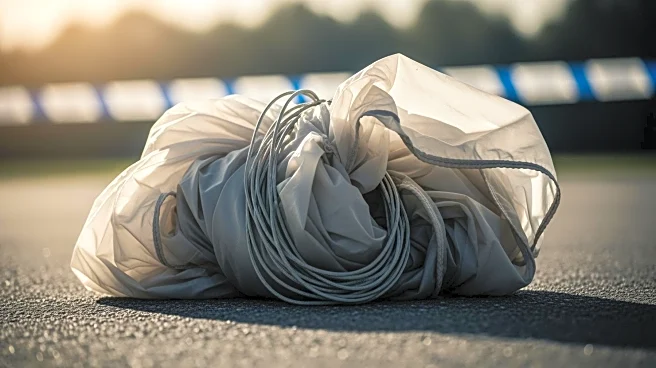What's Happening?
Russian Foreign Minister Sergey Lavrov's absence from a recent Russian Security Council meeting has led to intense media speculation about potential changes in Russian foreign policy leadership. Kremlin
spokesman Dmitry Peskov addressed these rumors, confirming that Lavrov remains in his position despite missing the meeting where President Vladimir Putin discussed nuclear testing. Lavrov's absence was noted as he was the only permanent member of the Security Council not present. Additionally, Lavrov will not lead the Russian delegation to the upcoming G20 summit in Johannesburg, with Deputy Chief of Staff Maxim Oreshkin appointed instead. Lavrov has been a key figure in Russian diplomacy for over two decades, serving through significant geopolitical events and maintaining a confrontational diplomatic style.
Why It's Important?
Lavrov's absence and the subsequent speculation highlight potential shifts within the Russian government, which could impact international diplomatic relations. As a long-standing figure in Russian diplomacy, any change in Lavrov's role could signal a shift in Russia's foreign policy approach, particularly in its interactions with Western nations. The timing of these developments, following the cancellation of a planned summit between President Putin and President Trump, suggests possible diplomatic tensions. The Kremlin's response to these rumors indicates an effort to maintain stability and continuity in its foreign policy amidst external pressures and internal challenges.
What's Next?
The Kremlin's handling of Lavrov's absence suggests a focus on maintaining internal cohesion while addressing external diplomatic challenges. Observers will be watching for any further signs of reshuffling within the Russian government, which could affect Russia's international stance. The upcoming G20 summit, led by a less senior official, may provide insights into Russia's current diplomatic priorities and strategies. Additionally, the Kremlin's approach to managing internal dissent and external diplomatic setbacks will be crucial in shaping Russia's future foreign policy direction.
Beyond the Headlines
Lavrov's absence and the speculation surrounding it underscore the complexities of Kremlin politics, where loyalty and continuity are often prioritized over abrupt changes. This situation reflects broader themes in Russian governance, where strategic reshuffling is used to manage both internal and external pressures. The diplomatic style and historical context of Lavrov's tenure highlight the challenges faced by Russian diplomacy in navigating global geopolitical dynamics.










